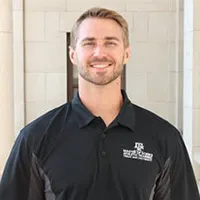Redefining the Science of Movement and Sport
Our Department
The Department of Kinesiology & Sport Management at Texas A&M University stands at the forefront of human movement, sports, coaching, and wellness education and research. Our department is dedicated to improving the quality of life from a local to a global level.
Department Explorer
The people here at Texas A&M are very well networked and will do everything in their power to place you in a position that benefits your personal and career aspirations.
Areas of Research
- Exercise Physiology
- Motor Behavior
- Neuroscience
- Sport Coaching and Pedagogy
- Sport Consumer Behavior
- Lifespan Wellness
- Muscle and Cardiovascular Physiology
The Byrne Student Success Center provides students with the tools and resources they need to be academically and personally successful, including:
- Academic Coaching
- Learning Communities
- Food Pantry
- First-Gen Network
- Transformational Learning Fellows Program Byrne Student Success Center
Our Programs
The department is comprised of three programs: Kinesiology, Sport Management and the Physical Education Activity Program. Each program offers various degrees and outreach programs promoting continuing education for students and the community.
Kinesiology
The Kinesiology program equips students with the knowledge and skills to lead in health, fitness, and movement sciences. Our programs emphasize a deep understanding of the biological principles behind exercise and human performance.
Graduates from our program pursue diverse careers in fields like physical therapy, sports science, coaching, healthcare, and education. Whether entering the workforce or continuing with advanced studies, students benefit from a strong foundation that prepares them for success.
We offer undergraduate degrees in areas such as applied exercise physiology, motor behavior, and basic exercise physiology, along with graduate programs in clinical exercise physiology, sports physiology, athletic training, and sport management. Each pathway is designed to set students up for leadership and specialized roles in their chosen fields.
Our department is an active member of the American Kinesiology Association, working to advance kinesiology and promote research that enhances health and wellness.
Discover how a degree in kinesiology can set you on a path to make a meaningful impact.
Find My Advisor
This tool is to find undergraduate advisors. To contact graduate program advisors, please email: knsm-grad@tamu.edu.




